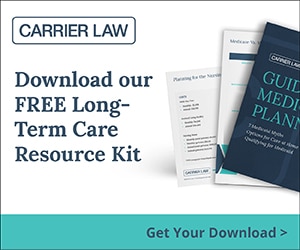Dementia and disability strike over 70% of American families.
Families who have poured time, resources, and trust into half-baked conventional estate planning. The result? Disaster. Plans that are worse than useless. Probate traps for the unwary. You thought you were ready. So did your kids. Imagine their shock when all that effort disintegrates like a sandcastle in a hurricane. Your children are forced to act without the necessary tools. Life savings drained away.
Probate Court mandating rigid rules and reporting requirements. And you hear from everybody “There is nothing you can do!”
Unfortunately, Medicaid mythology reinforces your family’s sense of hopelessness. Everybody knows nothing can be saved. Everybody knows Medicaid is for poor people only. Everybody knows only the lowest quality, least maintained, overcrowded, and retched nursing homes even accept Medicaid.
Everybody knows you must give in, give up, and go broke! Everybody knows!
Would you be surprised to learn that none of this Medicaid mythology is true?
For over 30 years, through thousands of cases, saving millions of dollars, providing the highest level of personal choice and quality care, we have shown, without doubt, that:
- FACT 1 – Something can always be done!
- FACT 2 – Most nursing homes accept Medicaid
- FACT 3 – Determined action, supported by your expert team of attorneys and paralegals can secure assets, obtain the best quality care, and preserve life savings.
Ignore the gossip, twice-told tales and counsel of despair. Dozens of Medicaid programs provide a wide variety of benefits. Qualifications and benefits vary with the programs. Some of the available benefits include:
- Skilled nursing care.
- Traditional nursing home.
- Memory care in an assisted living facility.
- At-home care, including transportation, light housekeeping, medical equipment, therapy and specialist care.
Which program is best? Get started by scheduling your free Discovery meeting with one of our friendly and professional paralegals.


